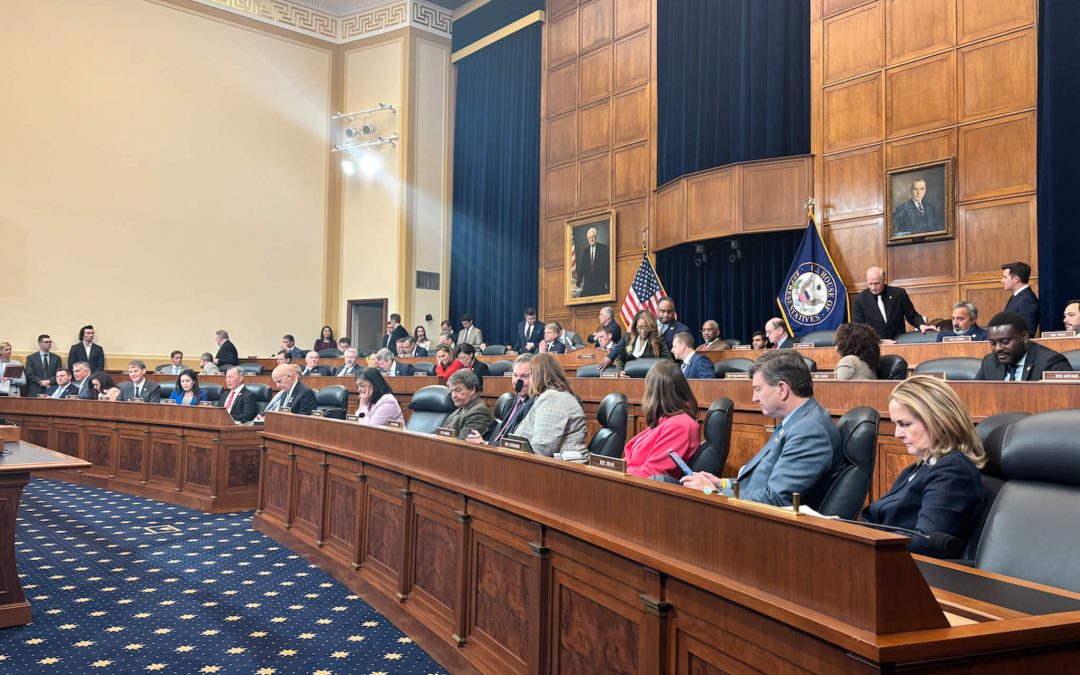WASHINGTON – The House Foreign Affairs committee last Wednesday passed the “No Tax Dollars for Terrorists Act” (H.R. 260), teeing it up for a vote on the House floor.
The bill, which was co-sponsored by 23 House Republicans, would aim to stop foreign countries and nongovernmental organizations (NGOs) from providing financial or material support to the Taliban through the use of U.S. foreign aid or other means. It also would task the Department of State with developing and enforcing a plan to discourage such practices, which bill sponsor Rep. Tim Burchett (R-TN) said “needs to end.”
“Since December of 2021, the United States has sent over $5 billion in cash to Kabul,” Burchett said. “This money has been taxed and stolen by the Taliban, yet we continue to send it.”
The legislation, which passed on voice vote, comes at a time when the Trump administration has scrutinized and cut several foreign aid programs over concerns that U.S. aid and taxpayer dollars have ended up in the hands of terrorist organizations or would be better spent at home.
Despite agreement on the bill’s premise to cut off support to the Taliban, Republicans and Democrats sparred over whether the bill should require transparency about how NGOs spend money from the federal government. During the session, House Foreign Affairs Committee Ranking Member Gregory Meeks (D-NY) proposed an amendment to keep NGOs out of any potential State Department report to Congress, citing concerns over the disruption of humanitarian aid in Afghanistan.
“We’ve long shared bipartisan support for Afghan allies, and for vulnerable groups, especially women and girls. How does abandoning vulnerable Afghans or undercutting NGOs help serve our interests?” Meeks said. “How does risking a humanitarian crisis in Afghanistan advance U.S. national security?”
Meeks was joined by Rep. Olszewski (D-MD), who cited that half of Afghanistan’s population requires humanitarian assistance. “We should not take lightly this life or death impact of any disruption of U.S. foreign assistance for those living under the Taliban’s repressive rule.”
However, Burchett and other House Republicans insisted that the inclusion of NGOs is necessary, arguing that it is not about disrupting aid, but fully addressing national security concerns. Republican lawmakers also cited that some NGOs have taken part in activity that must be examined.
“They should absolutely be included in this legislation. We need to know who these groups are,” Burchett said. “I don’t trust the Taliban to properly distribute $40 million every week only to aid workers. I don’t see how anybody can on either side of the aisle.”
According to Burchett, “there are around 1,000 NGOs operating in Afghanistan” that receive “a weekly influx” of American tax dollars.
When speaking on his opposition to the amendment, House Foreign Affairs Committee Chairman Rep. Brian Mast (R-FL) cited a Special Inspector General for Afghanistan Reconstruction report, which “found that the Taliban had received tens of millions of dollars, American taxpayer dollars, via NGOs operating in Afghanistan.”
“If there are dollars going out the door from an American taxpayer to a foreign country, foreign NGO, foreign adversary, foreign terrorist organization…American people deserve to know, and their representatives deserve to know where those tax dollars are going,” Mast said.
This clash reached center stage during a roll call vote that followed the markup session, in which Meeks’ amendment was shot down by a vote of 28 to 23. Out of four amendments proposed, two were adopted.
Next, the bill was expected to face a vote of the entire chamber. House Republicans were expected to echo the Trump Administration’s hardline on counterterrorism efforts and sharply criticize the way U.S. aid and tax dollars have been spent in the past.
“We don’t want American tax dollars, in any way, shape or form, going to the Taliban,” Mast said. “That’s important for the United States of America. We don’t have an embassy there. We don’t have diplomatic relations with the Taliban – they are a terrorist organization.”

